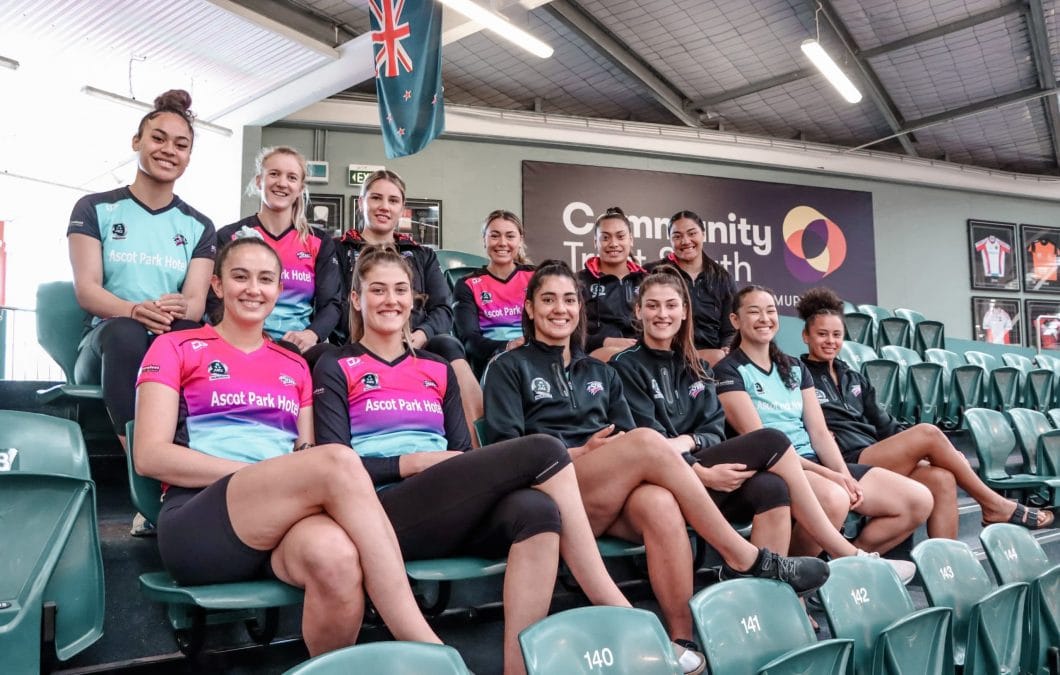
Rugby and netball are starkly contrasting sporting codes but physiotherapist Andrew Mackintosh is discovering plenty of similarities.
Mackintosh has joined the ranks of the Ascot Park Hotel Southern Steel this season, tasked with keeping the players in peak shape as the demands of the ANZ Premiership unfold.
While the rugby field has featured predominantly in both his sporting and professional life, Mackintosh is no stranger to a netball court. His mother Kate spent several seasons as manager of the legendary Southern Sting.
“I spent a fair bit of time around the netball courts. I remember lining up outside the stadium with Kristie Simpson, who’s now an ANZ Premiership umpire, camping out overnight to get season tickets to the Sting. We grew up together out at Tokanui Waimahaka,” Mackintosh said.
“I have very fond memories of mum’s involvement with the Sting. We were pretty lucky to watch them through what was a phenomenal period in New Zealand sport.
“How remarkable was it for Southland and Invercargill – we were so passionate. When you talk about it from a women’s sport perspective, that was huge. They were the superstars down here.”
He was relishing the opportunity to be involved in netball’s top echelon.
“It’s not an unfamiliar sport just through previous involvement with mum but definitely new from a professional point of view and a physiotherapy perspective in terms of new athletes, new movement patterns and different sorts of injuries but it’s been a pretty cool learning so far,” he said.
“As physiotherapists we like to be able to challenge ourselves and it’s basically a different application of a skillset. A lot of the stuff we do is pretty transferable, especially in a high performance environment.
“It’s a wee bit more relaxing watching a game of netball compared to a game of rugby because you don’t have that same level of crunching contact … or at least you hope there isn’t.
“From an athlete point of view, it’s very similar. The biggest difference is in the number of athletes you’re dealing with. In a rugby campaign, we can have upwards of 45 players that take the field in a season so the sheer volume of athletes is pretty huge. Dealing with a lot less athletes means you can spend a lot more quality time with them.
“And compared to the rugby blokes, the netball girls can all strap their own ankles which is pretty impressive.”
A director of Sportsmed Southern Physio, Mackintosh is in his fourth season as lead physiotherapist to the Southland Stags and also has an extensive involvement with the Academy Southland programme.
“There’s a lot of transfer from the rugby aspect. I’m familiar with dealing with athletes, comfortable in the gym and working with athletes when they’re injured. Obviously, they need their bodies to do what they love to do and when they can’t do it, it can have a bit of an impact on them so we need to guide them through the rehab programme and return to play process,” he said.
“With the academy, we get to see a wide range of athletes come through our door, ranging from archery to badminton to cycling to golf to rugby to table tennis to taekwondo. That’s the really cool
thing about being based at the stadium in that you do get to work with a whole lot of different sports and athletes. And I learn just as much off our athletes as what they probably learn off me.”
Working in partnership with Steel’s management team, Mackintosh was learning more about key movement patterns relevant to each position on court.
“When you talk about that whole team approach, it is about what is the coach seeing, what is the S and C seeing to what am I seeing – and trying to nut out how to get the best performance out of our players.
“A lot of what we do in the physio role, especially in the netball space, is definitely a lot more injury prevention. We obviously want to avoid big injuries like an ACL. The cost of an ACL on an athlete is huge and could be 12 to 18 months before you really return to performance. You might return to play but that real return to performance and confidence can take a while. It’s a pretty debilitating injury.”
A father of four, Mackintosh paid kudos to his wife Renee and their family for supporting him “to do what I love”.
To help with the workload, colleague Stacey Allen attends Steel’s away games. The duo has a punishing North Island assignment looming with the southerners set to contest four games in just nine days at the start of April.
“It’s intense, especially when you take into account travel and the back-to-back games,” Mackintosh
said.
“Right from our preseason we’ve been deliberately structuring our weeks to condition the athletes to be able to handle it safely. We’ve got other measures in place in terms of their wellness and their recovery. We don’t want stressed or fatigued athletes because that’s when you increase the risks of those big injuries.
“As the season progresses, we’re trying to reduce the risk as much as we can because it will put a bit of stress on them. We’re the fence at the top of the cliff, not the ambulance at the bottom.
“I’m fortunate that I’ve stepped into a team which has been operating together for a long time and they’ve got strong processes in place. It’s been an easy transition.
“We’re in competition mode now after a big preseason so this is where the rubber meets the road. I have every confidence we’ve got a crew of fit and strong athletes there who will be able to put the performances out on court to match what we know they can do.”

